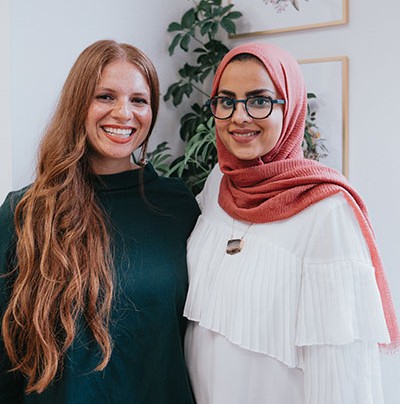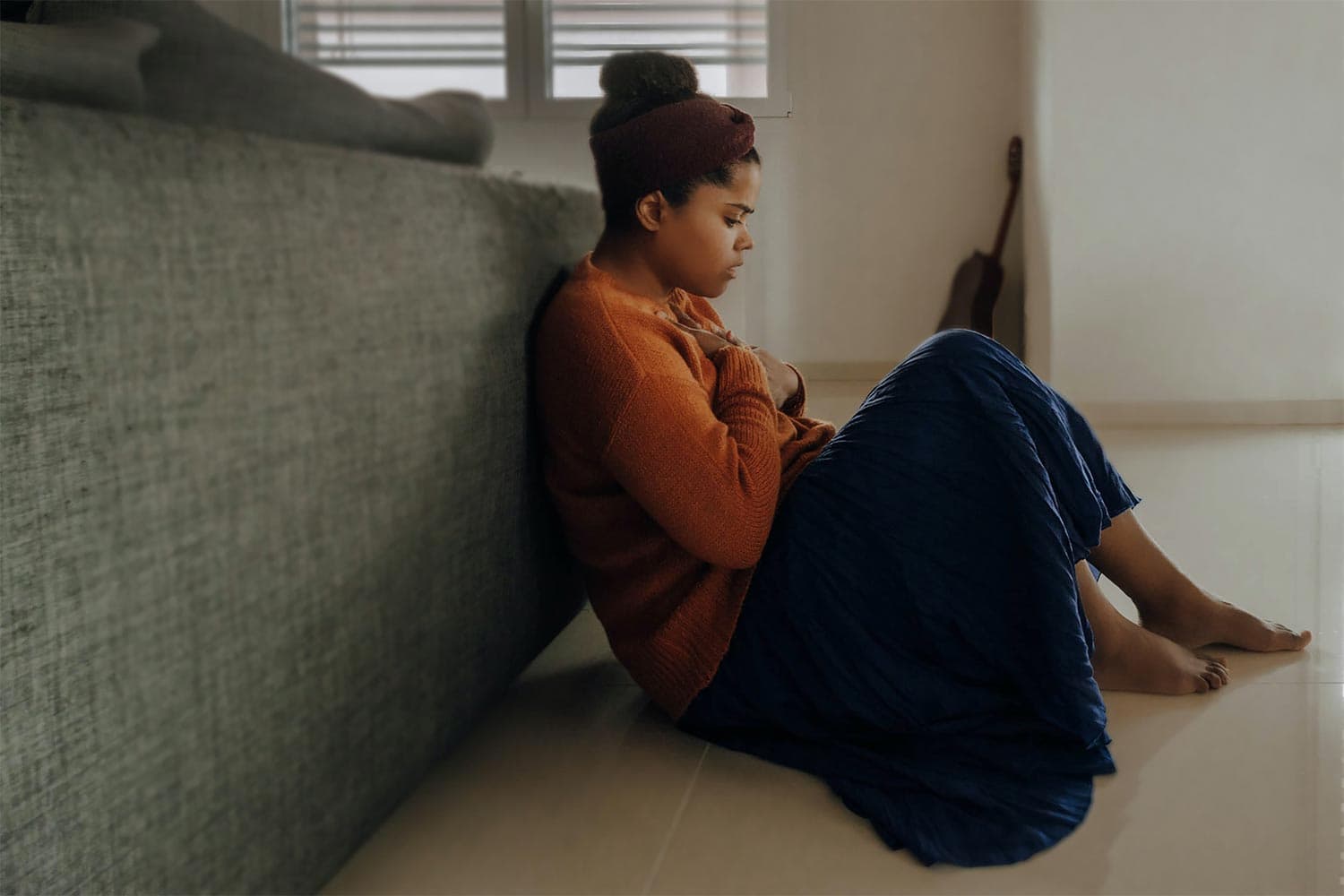What Does Anti-Oppressive Therapy Look Like?
A Toronto clinic aims to provide mental health services for racialized communities.
Three years ago, Dev Ramsawakh waited months to see a psychiatrist, then was repeatedly misgendered at the appointment by both the doctor and a white social worker. This came after they had already tolerated being told to try yoga by that social worker, without any consideration for how someone of South Asian descent may have cultural and religious ties to those practices.
“Following that incident, I was really deterred from accessing mental health services, I struggled with feeling confident in the process,” recalls Ramsawakh, who identifies as genderqueer, genderfluid, and polyamorous. “And I just felt exhausted and disillusioned. To realize that there would be the possibility of getting a psychiatrist who wasn’t invested in my wellness was very disheartening, and so for a long time I did give up on mental health services.” In this way, as a disabled racialized individual with a trauma history, Ramsawakh felt stuck for options.
Stories like Ramsawakh’s demonstrate the dire need for helping professionals to better understand how oppression can intersect with mental health challenges. Otherwise, health care providers run the risk of harming the very people whose needs they ought to serve.
Racialized participants were more than twice as likely as white participants to report discrimination during the pandemic.
As Covid-19 continues to disrupt lives across the country, its mental health impact for marginalized individuals deserves more attention.
According to a 2020 Statistics Canada survey, gender-diverse participants were almost three times more likely than men to report that they had experienced discrimination during the pandemic. Based on the same study, Chinese, Korean, Southeast Asian, and Black participants were more than two times as likely as white participants to report discrimination. Participants with a disability were two times as likely to report experiencing discrimination.

Zainib Abdullah and Sarah Ahmed are the co-founders of Toronto’s WellNest clinic.
Sarah Ahmed and Zainib Abdullah—two women of colour and co-founders of Toronto’s WellNest Psychotherapy Services—highlight the lack of representation in the mental health space as a driving force for starting their business. In doing so, they worked with other racialized communities to ensure that their practice is anti-racist, feminist, trauma-informed, LGBTQ-aligned, and culturally, spiritually, and linguistically appropriate.
“I continually hear from clients, over and over again, how grateful they are, how happy they are, that they have a space that is able to represent them,” says Abdullah. She describes how often they heard from racialized individuals during initial interactions that they are reaching out to connect with a therapist of colour. With 90% of their clients identifying as racialized, it is clear to her that their racially diverse team of therapists allows for a rare feeling of safety.
Abdullah reflects on how there were never many healing spaces for her as a Muslim immigrant kid, which drives her own work to develop mental health services that meet the diverse needs of people in these communities, needs she understands well.
A woman of Arab and African ethnicity in her twenties requested to remain anonymous to share freely about her experiences, but for clarity we will call her Zara. Zara reported seeking mental health support following panic attacks after a sexual assault. She recalls being asked by an older white doctor if she was a virgin, how long ago she had come to the country, if she had come alone, and if she liked her job. He also felt the need to tell her, “You realize that if there is no violence, that’s not a rape.”
That interaction resulted in three panic attacks about that doctor over the next 24 hours. As a permanent resident in Canada for less than three years, this Moroccan woman says she did not know if his triggering questions were the norm in these appointments.
Maybe it’s free, but it’s going to actually cost me something.
Zara went to a free therapist, but found that her specific struggles about finding a job as a recent immigrant were not being heard. A friend then told her about the negative impacts of not feeling heard by a health-care professional, “so I stopped because I thought maybe it’s free, but it’s going to actually cost me something.”
For this reason, Zara searched for a racialized therapist on the Healing in Colour website, and described her ideal therapist as an immigrant. This directory of racialized psychotherapists was created by BC-based mental health professionals, Yasmin Hajian and Premala Matthen. Their resource was developed in response to the unmet needs of racialized people seeking therapy.
Ramsawakh can relate to the harm these interactions can cause, and they suggest taking them seriously because a practitioner’s feedback may be a reflection of their lack of knowledge, rather than the client’s needs not being valid.
“Do not allow them to convince you that your problems aren’t worth seeking care for, because they definitely are,” they add.
Ramsawakh currently sees a therapist who is a much better fit, but cost remains a challenge. “Even with the subsidized rates, it’s about $80 a session for 50 minutes,” they explained. “I see him weekly so that works out to over $300 a month, which is a lot to spend. And that’s just one aspect of mental health care.”
A practitioner’s feedback may be a reflection of their lack of knowledge, rather than the client’s needs not being valid.
High mental health costs are not an option for many marginalized communities, as food insecurity is the largest concern in many households. So there may be even more barriers to therapy during the pandemic.
With financial challenges in mind, WellNest created free videos and blogs, in addition to their ongoing work to destigmatize therapy and offer services at subsidized rates. Abdullah also described the hard work required as co-founders of a practice of mostly racialized psychotherapists to sustain and provide support for their team virtually during the pandemic, by checking in with them regularly. It has sometimes meant open discussions about the need to reduce practitioners’ hours, or cut back on referrals to support certain concerns if therapists reported that they had hit their own capacity.
The organization also fundraised C$12,000 in 24 hours to provide free services for Black people to support the Black Lives Matter movement. Their practice takes oppression into consideration and gives racialized people a glimpse into what equitable mental health care may look like. WellNest may provide the environment and the opportunity for racialized people to feel safe to access mental health supports. Something that Ramsawakh says they wished they’d had in that Toronto clinic all those years ago.
Print Issue: Spring/Summer 2021
Print Title: Rethinking Mental Health Care
